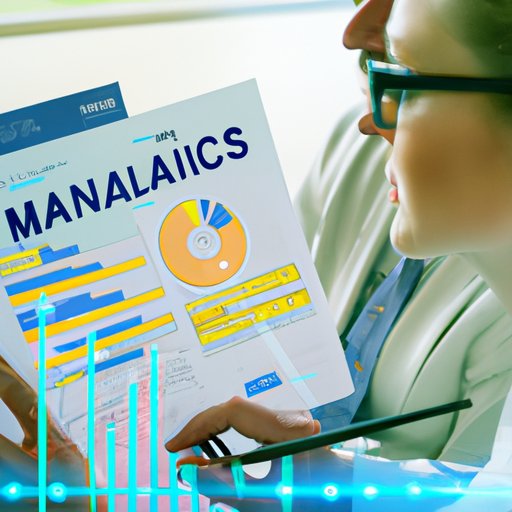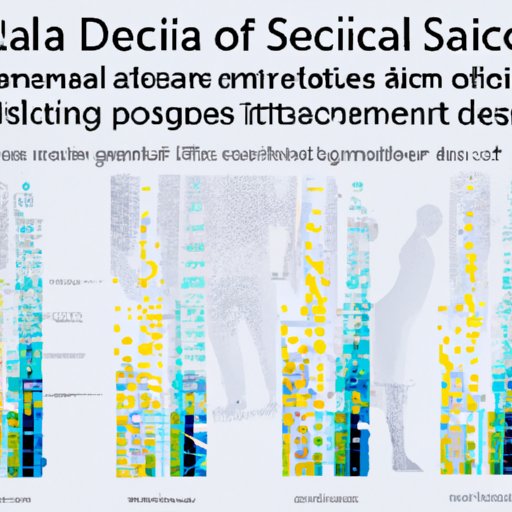Introduction
In the modern era, data is increasingly becoming a valuable asset for organizations, businesses, governments, and individuals alike. Data science is the practice of collecting, analyzing, and interpreting large sets of data to uncover patterns and insights that can be used to inform decisions, guide strategies, and solve problems. As the capabilities of data science continue to evolve, its potential to positively impact our lives, our communities, and our world is becoming more apparent.
Data science has the potential to revolutionize the way we view, interact with, and understand the world around us. By leveraging data-driven insights, data science can help us gain a better understanding of complex phenomena, identify trends, and make predictions about the future. In this article, we will explore how data science can be used to help society by improving healthcare outcomes, addressing social inequities, predicting and responding to public health crises, increasing efficiency in government operations, informing urban planning decisions, and combating climate change.

Analyzing Healthcare Data to Improve Patient Outcomes
Data science can be used to analyze large amounts of healthcare data to identify trends and correlations between various factors such as patient demographics, medications, treatments, and outcomes. This type of analysis can help healthcare providers identify areas for improvement and make more informed decisions about how to best treat their patients.
For example, a study published in the Journal of Medical Internet Research found that machine learning algorithms, which are used in data science, could be used to accurately predict hospital readmission rates. The study concluded that “the use of predictive analytics in clinical decision making has the potential to improve quality of care and reduce costs.” This type of analysis can be used to improve patient outcomes, reduce healthcare costs, and ultimately save lives.

Using Data Science to Identify and Address Social Inequities
Data science can also be used to identify and address social inequities. Data can provide a clearer picture of the disparities that exist across different populations, allowing us to better understand the root causes of these disparities. This information can then be used to inform policies, create targeted interventions, and ultimately help bridge the gap between various groups within society.
For instance, a 2018 study published in the journal Nature found that data science could be used to identify racial disparities in mortgage loan approvals. The study concluded that “data science tools can help to identify patterns of discrimination that may otherwise remain hidden from view.” By using data to uncover these disparities, we can begin to take steps towards creating a more equitable society.
Developing Predictive Models to Identify and Respond to Emerging Public Health Crises
Data science can also be used to develop predictive models that can help identify emerging public health crises before they become widespread. These models can be used to track disease outbreaks, predict the spread of infectious diseases, and monitor changes in the environment that could have an impact on public health. By using data to stay one step ahead of potential crises, we can be better prepared to respond to them when they do occur.
For example, a 2020 study published in the journal Nature Communications found that machine learning algorithms could be used to predict the spread of the novel coronavirus (SARS-CoV-2). The study concluded that “these methods can be used to anticipate the dynamics of the pandemic, helping to inform decision makers and guide interventions.” By using data science to anticipate and prepare for public health crises, we can be better equipped to respond to them effectively.

Utilizing Data Science to Increase Efficiency in Government Operations
Data science can also be used to improve the efficiency of government operations. Data can be used to streamline processes, identify areas for improvement, and make more informed decisions. For instance, a 2018 report published by McKinsey & Company found that data science could be used to reduce costs and improve the delivery of government services. The report concluded that “data-driven approaches can potentially reduce costs by up to 25 percent and deliver up to 20 percent gains in service delivery.” By using data science to improve the efficiency of government operations, we can create a more efficient and effective public sector.
Leveraging Data for Urban Planning and Development
Data science can also be used to inform urban planning and development decisions. By analyzing data on population density, economic activity, transportation networks, and other factors, planners can gain a better understanding of cities and identify opportunities to improve them. For example, a 2016 study published in the journal PLOS ONE found that data science could be used to optimize traffic flow in cities. The study concluded that “using data science techniques to analyze real-time traffic data can lead to improved urban mobility.” By leveraging data to optimize cities, we can create more efficient and livable urban environments.
Applying Data Science to Combat Climate Change
Data science can also be used to analyze climate data and identify ways to combat climate change. By analyzing data on greenhouse gas emissions, weather patterns, and other factors, scientists can gain a better understanding of the causes and effects of climate change. This information can then be used to inform strategies for reducing emissions, mitigating the impacts of climate change, and adapting to a changing climate.
For instance, a 2019 study published in the journal Nature Climate Change found that data science could be used to identify the most effective strategies for reducing emissions. The study concluded that “data-driven approaches can be used to design strategies for reducing emissions that are tailored to specific regions and contexts.” By using data science to analyze climate data, we can develop more effective strategies for combating climate change.
Conclusion
Data science has the potential to revolutionize the way we view, interact with, and understand the world around us. From improving healthcare outcomes to addressing social inequities, predicting and responding to public health crises, increasing efficiency in government operations, informing urban planning decisions, and combating climate change, data science can be used to help solve many of the world’s most pressing problems. As the capabilities of data science continue to evolve, its potential to positively impact our lives, our communities, and our world will become even greater.
(Note: Is this article not meeting your expectations? Do you have knowledge or insights to share? Unlock new opportunities and expand your reach by joining our authors team. Click Registration to join us and share your expertise with our readers.)
